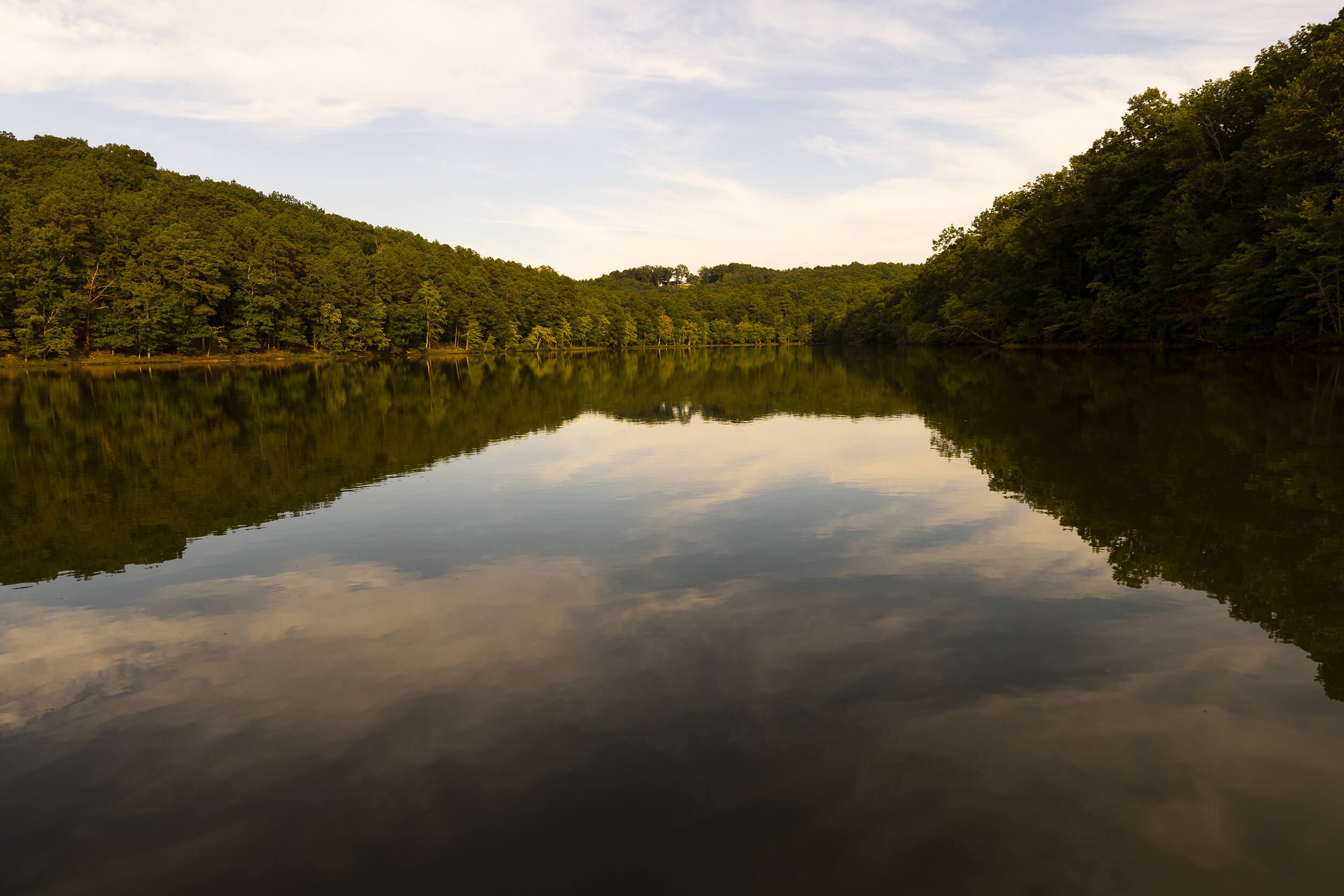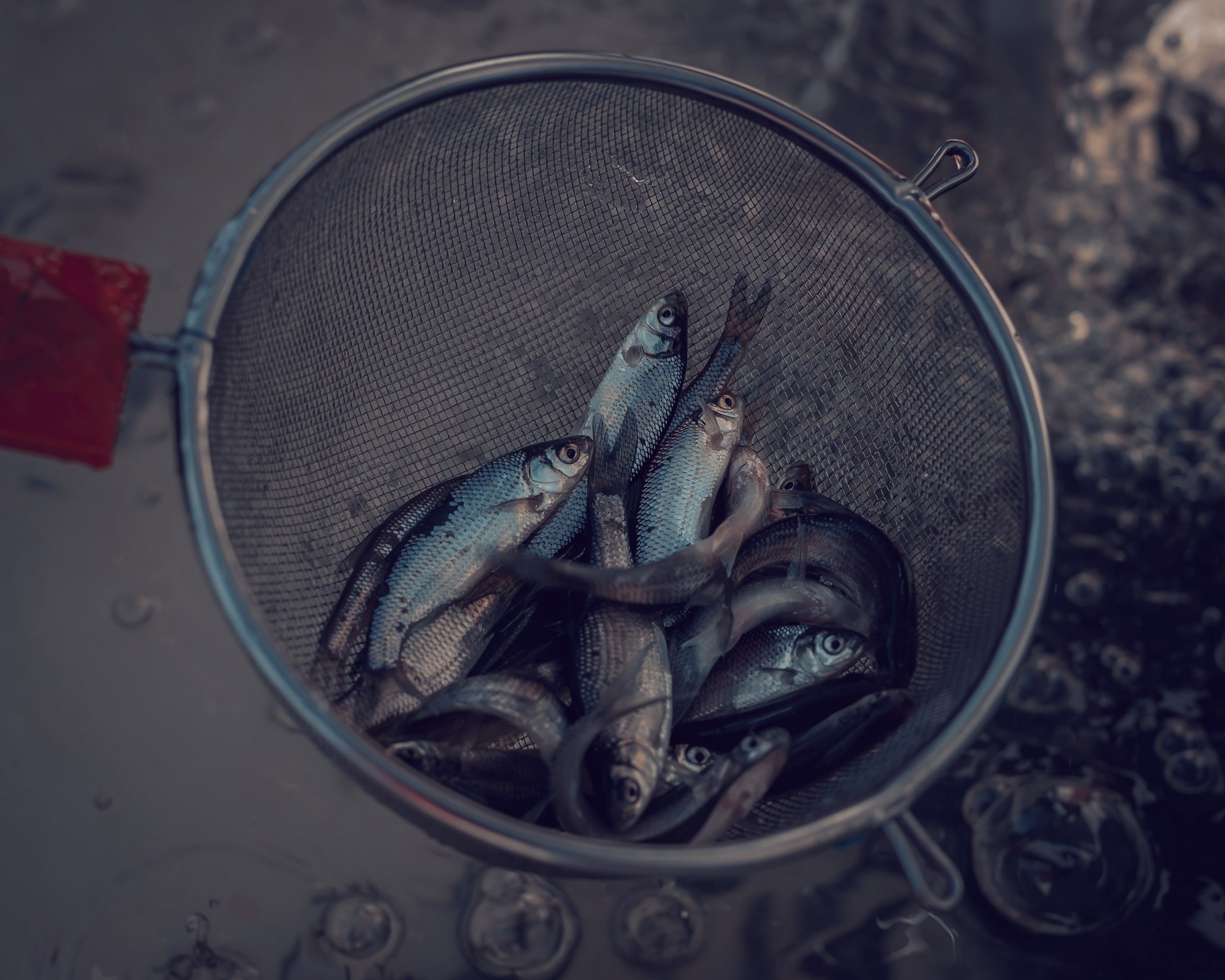
Georgia Pond Stocking and Comprehensive Lake Management
SERVING ALL OF GEORGIA
Unlocking Georgia's Potential for Trophy Fish
Georgia's landscape has numerous private ponds and lakes, allowing pond owners to raise fish that can achieve trophy sizes. At the heart of this endeavor, Georgia pond stocking stands as a beacon for optimizing fish populations. This has been exemplified by the famous world-record largemouth bass, a fish revered in freshwater fishing circles caught in Georgia. Add to this the impressive state-record bluegill, weighing in at three pounds five ounces, and you begin to grasp Georgia's potential for stocking fishing ponds.
Recent Success Stories in Pond Stocking
The recent efforts in Georgia pond stocking have already reaped tremendous results. For instance, after only a short tenure in the Peach State, initiatives like that of Trophy Pond have seen remarkable outcomes. Their expertise transformed a 22-acre northern Georgia lake, stocked in November 2016, into a habitat producing a thirteen-pound largemouth bass by 2018. Another feat was turning a one-acre pond near Ringgold, stocked in May 2016, into a home for twenty-four-ounce hand-painted bluegill by June 2019.
The Role of Genetics in Fish Growth
Central to achieving these results is understanding fish genetics. The genetic profile of fish plays a dominant role in their size and growth potential. As a simple analogy: no matter how well you feed a Dachshund, it will never rival the stature of a less-nourished Great Dane. Similarly, while a Northern largemouth bass might max out at around six or seven pounds in a well-stocked Georgian pond, a pure Florida largemouth bass can thrive, reaching sizes of up to twelve pounds under the same conditions.
Comprehensive management is key for those pondering the benefits of stocking a pond in Georgia, whether in your backyard or on your farm. A holistic approach ensures the pond reaches its potential and entities like
Diverse Service Offerings by Trophy Pond
Trophy Pond offers many services, ensuring that all aspects of pond management are addressed. These services encompass:
-
Tailored recommendations on the best fish to introduce to your environment.
-
Building and maintaining the optimal aquatic habitat.
-
Expertise in overseeing larger bodies of water.
In addition to these core services, several ancillary offerings can elevate the quality and experience of your pond:
Aeration Design: Guaranteeing ideal oxygen levels.
Consulting: Personalized advice on pond management.
Electrofishing: Scientific assessments of fish populations.
Guided Fishing: Enhancing fishing experiences for all skill levels.
Liming and Fertilization: Ensuring water health.
Real Estate Services: Aiding in property transactions involving ponds.
Weed Control: Maintaining the pristine nature of the pond.
Choosing the Right Fish Species for Georgian Ponds
When considering Georgia pond stocking, the choice of fish species becomes paramount. Trophy Pond, for example, boasts two distinct bluegill varieties native to Florida. The first is the pure coppernose bluegill, sourced from Florida's St. Johns River and Lake Jackson, and the second is the hand-painted bluegill from the Apalachicola River. When introduced to stocked ponds in Georgia, these subspecies outgrow their northern bluegill counterparts. Furthermore, the fish raised in middle Tennessee's climate is resilient to colder temperatures, making them especially suited to years when Georgia experiences colder-than-average winters.
Beyond Genetics: Strategic Decisions for Optimal Outcomes
Yet, genetics isn't the sole contributor to growing massive fish. Supplementary efforts can bolster results. Take the previously mentioned 22-acre lake. The initial fish stocked were forty muskies in November 2016. Such strategic decisions amplify the outcomes of stocking a pond in Georgia.
The Experience and Expertise of Trophy Pond
If you want to create a thriving pond or lake in Georgia, it is recommended to seek the help of experienced professionals. Walt Foreman, the chief biologist at Trophy Pond, has been designing private ponds and lakes since 1987. His vast experience helps avoid common mistakes and unlocks the full potential of your pond or lake.
Amateurs should address the intricate dance of balancing ecosystems in stocked ponds in Georgia. Each water body is its world, teeming with life and possibilities. Properly stocking and maintaining it requires a profound understanding of nature. With an arsenal of knowledge and expertise, the right choice can transform your pond into a fishing paradise.
Why Trophy Pond?
Further Information and Contact
For those eager to dive deeper into the nuances of pond stocking in Georgia or to explore any of the services offered, the option to Learn More about each service is available.
Interested in getting started or looking for a quote? Reach out today:
Email: info@trophypond.com
Phone: (931) 374-0536
People Also Ask
-
Before introducing fish to your pond in Georgia, ensuring a balanced ecosystem is essential. Begin by checking the water's pH level, ideally between 6.5 and 8.5. Remove debris or excessive aquatic vegetation and install an aeration system if needed. This helps in circulating the water and providing adequate oxygen for the fish. Lastly, consult with local fish stocking experts to understand the specific requirements of your desired fish species.
-
Maintaining water quality in a stocked pond involves consistent monitoring and management. Regularly test the water for pH, dissolved oxygen, and other key parameters. Implement an aeration system to ensure oxygen levels remain stable. Liming and fertilization can help balance the pond's nutrients, while appropriate weed control measures will prevent the overgrowth of unwanted plants. Additionally, avoid overfeeding fish and ensure that any runoff entering the pond is clean and contaminant-free.
-
The best time to stock fish in a Georgia pond is during the spring or fall when water temperatures are moderate. Springtime is particularly favored as it allows young fish to establish themselves and grow before the winter months. Fall stocking is also effective, given the water has cooled down from the summer heat, ensuring less stress on the introduced fish. Continuously monitor water conditions closely during the initial days after stocking.
-
Several challenges can arise when stocking fish in Georgia ponds. Predation from birds, larger fish, or other wildlife can reduce the number of introduced fish. Fluctuating water temperatures can stress or kill fish, especially during the peak summer or harsh winter. Overcrowding can lead to depleted oxygen levels and increased competition for food. It is important to be cautious when obtaining fish from unreliable sources, as they may carry diseases or parasites that can harm the pond ecosystem. To address this issue, it is recommended to regularly monitor the pond and seek advice from professionals in pond management.

